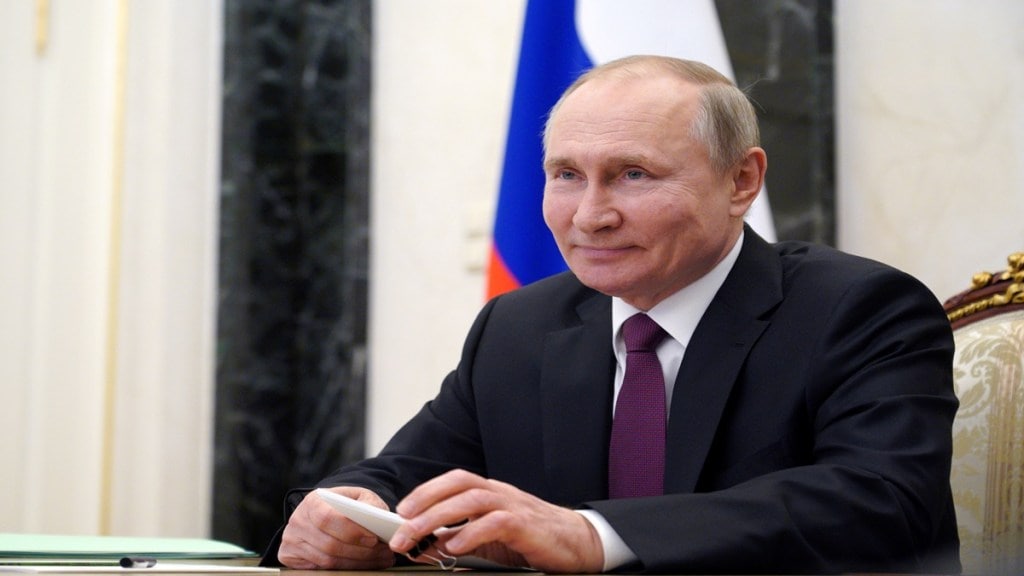Russian President Vladimir Putin has officially announced his candidacy for the 2024 presidential election in March, a move that signals his intent to prolong his hold on power for at least another six years. There is no doubting the fact that despite facing criticism for the costly war in Ukraine, Putin remains a formidable political force with widespread support. Following a Kremlin award ceremony, Russian President Putin revealed his decision to participate in the 2024 presidential election. The announcement came after war veterans and others urged him to seek re-election, with Kremlin spokesman Dmitry Peskov characterizing the remarks as “spontaneous.”
In a video released by the Kremlin post-event, Putin shared, “I won’t hide it from you — I had various thoughts about it over time, but now, you’re right, it’s necessary to make a decision. I will run for president of the Russian Federation.” Notably, political analyst Tatiana Stanovaya of the Carnegie Russia Eurasia Centre pointed out that the announcement was made in a subdued manner, avoiding a live televised speech. This choice is seen as part of the Kremlin’s strategy to highlight Putin’s modesty and his dedication to the job, rather than engaging in overt campaigning.
Stanovaya emphasized the significance of the announcement, stating, “It’s not about prosperity, it’s about survival. The stakes have been raised to the maximum.” Approximately 80% of the population reportedly approves of Putin’s performance, according to the Levada Center, reported Associated Press. The support, whether genuine or coerced, is expected to translate into limited opposition during the election. Putin, at 71, has used constitutional amendments to potentially remain in power until his mid-80s, making him the longest-serving Kremlin leader since Stalin.
Russia Election 2024
The upcoming presidential election in Russia is scheduled for March 17, 2024 which will span three days, including regions in Ukraine partially annexed by Russia. The election commission argues that the multi-day voting format, introduced during the COVID-19 pandemic, offers greater convenience for voters.
Putin’s Reign: Key Milestones in 24 Years of Power
December 31, 1999: President Boris Yeltsin resigns, appointing Putin as acting president.
May 7, 2000: Putin is inaugurated after winning the presidential election with approximately 53% of the vote.
2000-2005: Early Presidency and Controversies
May 11, 2000: Tax police raid NTV, signaling the beginning of actions against independent media.
August 12, 2000: The Kursk submarine sinks, drawing early criticism for Putin’s delayed response.
October 23, 2002: Moscow theater hostage crisis unfolds, resulting in a controversial rescue operation.
2004-2014: Second Term, Beslan Tragedy, and Geopolitical Shifts
March 14, 2004: Putin wins a second presidential term.
September 1, 2004: Beslan school siege ends in tragedy; Putin restructures regional governance.
April 25, 2005: Putin’s comment on the Soviet Union’s collapse as a “geopolitical catastrophe.”
February 10, 2007: Shift in Russia-U.S. relations as Putin diverges from closer ties.
May 8, 2008: Putin becomes prime minister after Dmitry Medvedev’s presidency.
2012-2020: Third Term, Olympics, Annexation, and International Actions
March 4, 2012: Putin secures a new six-year presidential term.
June 6, 2013: Putin announces divorce on state television.
February 7, 2014: Putin opens the Winter Olympics in Sochi, a prestige project.
March 18, 2014: Annexation of Crimea follows Ukraine’s political turmoil.
September 30, 2015: Russia initiates airstrikes in Syria to combat terrorist groups.
2018-2023: Constitutional Changes, Navalny’s Poisoning, and Ongoing International Tensions
July 1, 2020: Referendum approves constitutional changes, allowing Putin to run for two more terms.
August 20, 2020: Opposition leader Navalny poisoned; Putin denies involvement.
December 22, 2020: Putin signs bill granting lifetime immunity for former presidents.
February 24, 2022: Invasion of Ukraine begins, labeled a “special military operation.”
March 4, 2022: Law signed criminalizing spreading false information about the military.
September 30, 2023: International Criminal Court issues war-crimes indictment against Putin.
June 23, 2023: Mercenary Rebellion
June 23, 2023: Mercenary leader Yevgeny Prigozhin mounts a rebellion, taking control of Russia’s southern military headquarters.
(With Agency Inputs)

